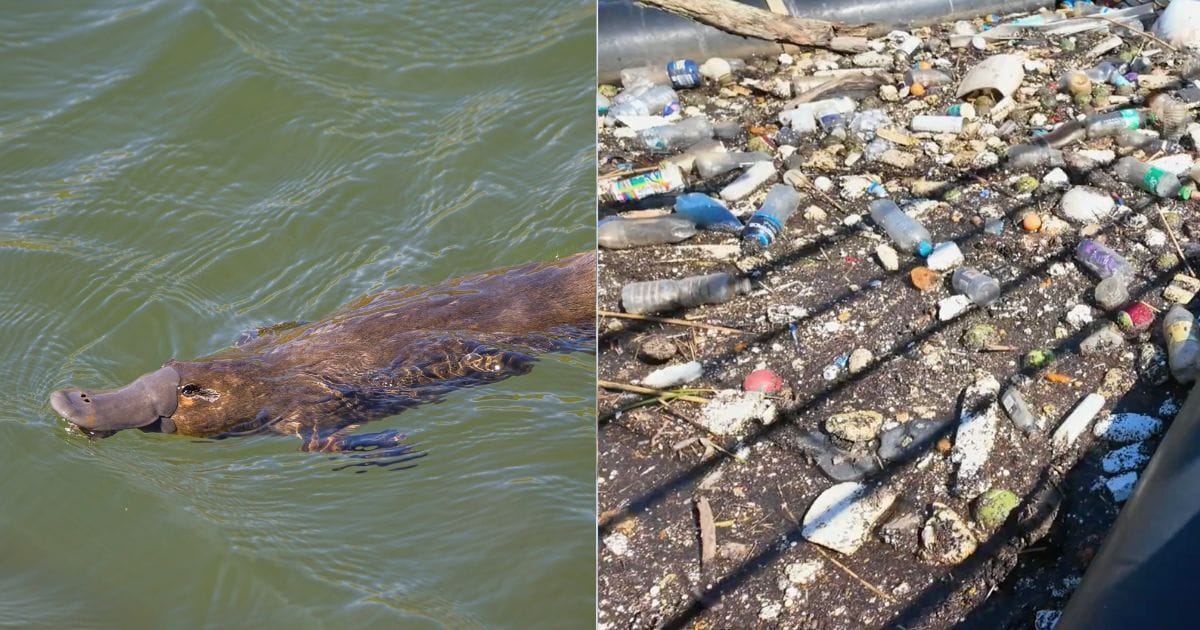⏱️You’re reading the National Account’s newsletter, sent on Monday, Wednesday and Friday. Subscribe here.
👋 G’day everyone, Archie here, in surprisingly good form considering my weekend away in Townsville catching up with some old mates.
From that, you can take a pretty good guess that there was a fair amount of drinking and talking absolute dribble, all while basking in the Queensland sun.

I thought using the camera remote in my pocket wouldn’t be obvious - I was wrong
And I won’t lie, the sun has been a huge mood improver. Especially after the seemingly endless rain Sydney has gotten over the last few weeks.
Anyway, it’s back on a plane home for me. As you read this, I’m probably in the air.
🗞️ Now, let’s crack on.

I accept that South Australians think that Governments were too slow to respond to this event, and for that I apologise.
🗣️ Why did he say that?
Environment Minister Murray Watt appeared on ABC News Breakfast today and was asked why it took so long for the federal and state governments to respond to the toxic algal bloom crisis unfolding in South Australia.
Since March, the oceans around South Australia have become clogged with an algal bloom, the effects of which have been amplified by climate change.
Hotter-than-average oceans and air temperatures, plus unusually calm waters, have created the perfect breeding ground for algae.
Here is an interview I did with University of Tasmania marine ecologist, Dr Scott Bennett. Who told me:
🗣️ “If this were happening on Sydney beaches, we’d all know about it. If it was happening on the Great Barrier Reef, it’d stop the nation. The amount of marine life that is dying and washing up in South Australia is truly catastrophic.”
For my full breakdown of Murray Watt’s “sorry”, check out today’s video:

Around the Grounds 🦘
Across the country, things are happening at a local level that have an impact nationally. Here’s the stories you might not hear about in the traditional media.
1️⃣ Platypuses and plastics
Last month, three platypuses were found dead in an illegal fishing trap in Melbourne’s east, highlighting ongoing threats to the species.
Mathew Sims from the Eastern Melburnian has found out it’s not just illegal traps, drought and plastic pollution that’s threatening already vulnerable platypus populations in Victoria — it’s also expanded polystyrene from building sites.
Yarra River Keepers Association President Janet Bolitho told Mathew, “EPS breaks down into microplastics, which can be ingested by wildlife.”
“We don't want to make things harder for our iconic mammals. Our work is dedicated towards creating the best possible conditions to enable platypus to thrive.”
Read that story by clicking below 👇
2️⃣ Beefing over bovine?
In July, the Albanese government made the call to allow beef from Mexico and Canada that had been slaughtered in the United States into Australia — but what does our local industry think?
Industry group Cattle Australia has warned the move could pose biosecurity risks, while the federal government has played those concerns down, insisting the move will not threaten Australia’s disease-free status.
Zara Cuthbertson at the West Vic Brolga asked Western Victoria Regional Livestock Exchange regional manager Jake Last what the reaction is on the ground.
He said they’re not expecting much of an effect on the Aussie market due to how much beef we are exporting to the US.
He added, though, that the biosecurity risks are a concern as it depends “on how good their traceability is, that’s obviously a big contributing factor to our biosecurity here in Australia.”
Read that story by clicking below 👇
3️⃣ Koalas or a $20m road
Not every day you hear about a round-a-bout upgrade costing $20 million, but that's the case in Port Macquarie, on New South Wales’ Mid North Coast.
A huge junction known as "The Donut" is set to be redeveloped, partly at the expense of koala habitat.
Ellie Chamberlain at the Mid North Coaster gives the full rundown, including how to make a submission on the $20 million proposal.
The biggest impacts from the plan were on the environment, as construction would require the removal of about 7.19 hectares of vegetation, including 2.73 hectares of native vegetation and koala habitat.
It’s not just Koalas that could be impacted either. The vegetation at the proposal site is also a potential habitat for nine other threatened fauna species, including three microbat species, three frog species and two bird species.
Read that story by clicking below 👇

Australia to recognise Palestine 🇵🇸
Prime Minister Anthony Albanese has confirmed Australia will join countries like France and the United Kingdom in recognising a Palestinian state at the 80th session of the United Nations General Assembly in September.
Albanese said:
🗣️ "A two-state solution is humanity's best hope to break the cycle of violence in the Middle East.
Here’s the first minute of that press conference below👇
And here’s some of the big quotes from politicians after the Prime Minister made his announcement👇

Thanks for catching up with me. I hope you enjoyed this issue, and I’d love to hear your thoughts. Just reply to this email and I’ll be on the other side 👋
I’ll be back on Wednesday.
Cheers, Archie








